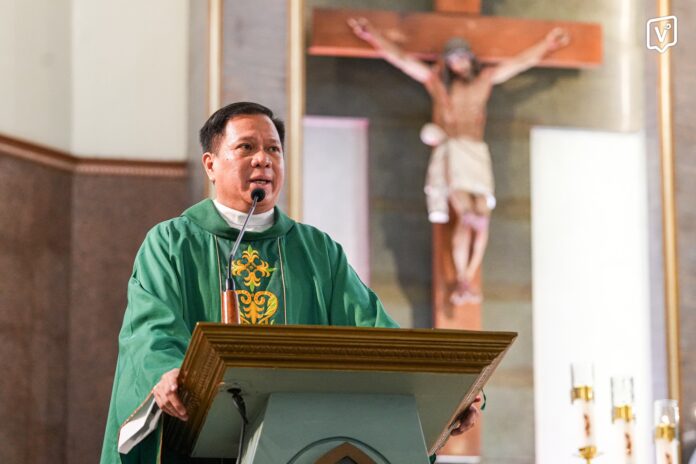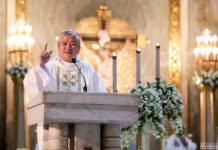
THOMASIAN clerics remained firm in their opposition to the absolute divorce bill, describing it as a morally questionable and unnecessary solution to failed marriages.
Msgr. Bernardo Pantin, secretary general of the Catholic Bishops’ Conference of the Philippines, said divorce is merely a “shortcut” for individuals seeking to escape difficult marriages.
“The stand of the Church will still be the same – that marriage is an unbreakable bond,” Pantin, the former president of the UST Alumni Priests’ Association, told the Varsitarian.
“The marriage we believe is inviolable…but divorce is trying to break up marriage,” he said. “There are several grounds for the dissolution of marriage kasi several marriages are in fact invalid… [pero] hindi kailangan na mag-divorce kasi it’s really breaking up marriage.”
The CBCP secretary general urged government officials to amend Executive Order No. 209, also known as the Family Code of the Philippines, which deals with the annulment of marriages.
In an online interview with the Varsitarian, CBCP spokesperson and Edsa Shrine Rector Fr. Jerome Secillano called divorce unnecessary, pointing to existing legal remedies, such as annulment, declaration of nullity of marriage, and legal separation.
“Adding another is akin to hastening the demise of marriage which is considered inviolable by the Constitution and sacred by the Church.”
Secillano also argued that divorce would not reduce the cases of marital abuse.
“The abuser will simply find a new spouse to be abused. Divorce doesn’t treat abusive behaviors. Once not treated, the cycle of violence and abuse continues.”
‘Badge of honor’
In a pastoral exhortation on May 27, Archbishop Socrates Villegas of Lingayen-Dagupan said the Philippines should consider its status as the only country where divorce has not been legalized as a “badge of honor.”
“For a long time now, it has been remarked—often as some kind of self-reproach—that we are the only country that has not made divorce legal. To any faithful Catholic and to any Christian who takes the Gospel as the ultimate norm of human life, this should not be a reproach but a badge of honor, a mark of distinction,” he said.
Villegas stressed that the Church considers matrimony one of its sacraments, an act by which it continues the saving work of Jesus.
“Because the bond that the Lord forges between himself and his Church is a bond that can never be broken, divorce would be perfidious to the reality of the sacrament,” he said.
“The Church urges that those intending to contract marriage discern with maturity their preparedness for the duties marriage imposes on them – and not treat it as some provisional arrangement that can be conveniently set aside when it so suits them,” Villegas said.
The House of Representatives on May 22 approved on third and final reading to reinstate absolute divorce in the country.
The Divorce Law was initially implemented in 1917 during the American Colonial Period, but it was repealed in 1943. The Republic Act No. 386, or the Civil Code, was then introduced in 1950 to permit legal separation instead of absolute divorce in the country.













